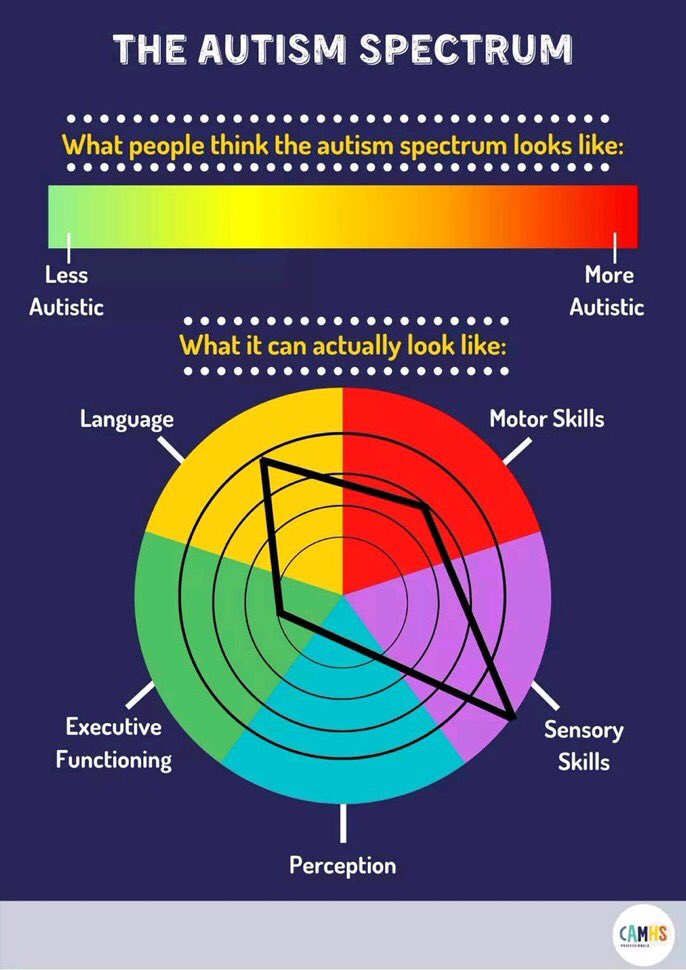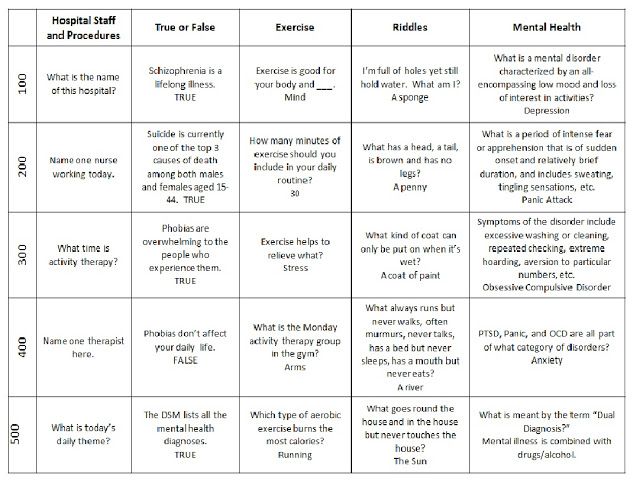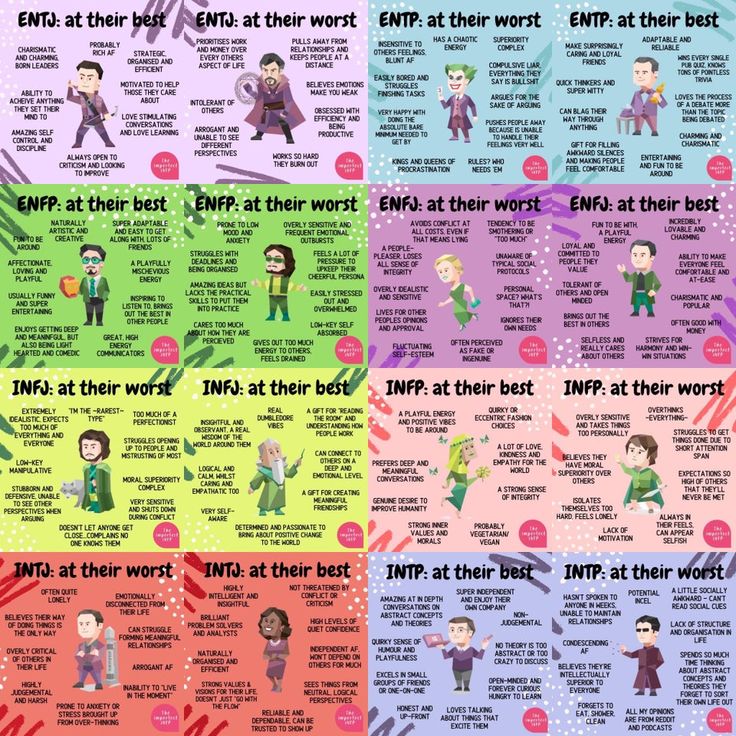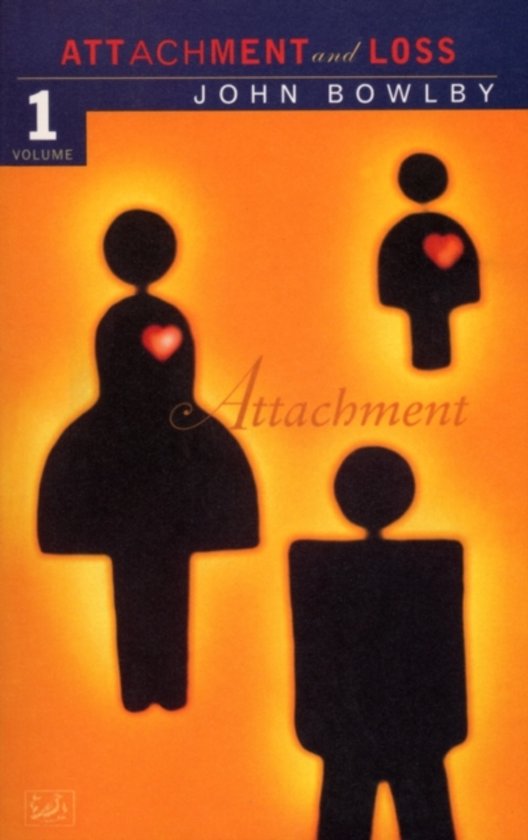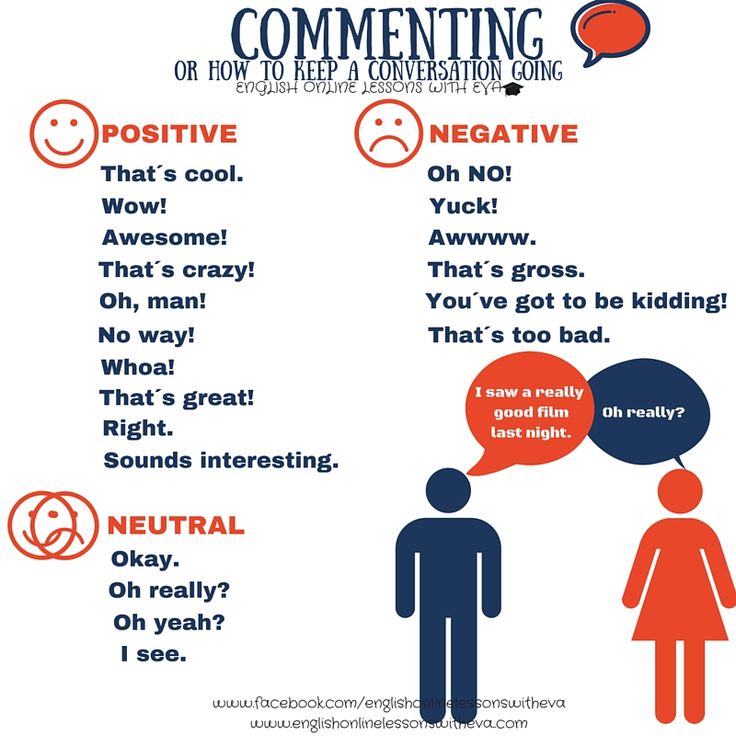Victim of infidelity
Recovering from the trauma of infidelity
Most people agree that a sexual affair counts as infidelity, but what about sending a flirty text? What if your partner takes out several loans and acquires a large debt without your knowledge? Does engaging in virtual sex with someone other than your partner, connecting with an ex on social media or maintaining an online dating profile even though you are already in a relationship count as betrayal? The answer depends on how the people in the relationship define infidelity.
A recent study commissioned by Deseret News found conflicting answers when 1,000 people were polled about what constitutes “cheating.” The majority of respondents (71%-76%) said that physical sexual contact with someone outside of the relationship would always meet the threshold for cheating. However, a slimmer majority thought that maintaining an online dating profile (63%) or sending flirtatious messages to someone else (51%) should always be considered cheating.
The lines on whether following an ex on social media constituted a betrayal were even more ambiguous: 16% said it was always cheating, 45% thought it was sometimes cheating, and 39% answered that it never was.
As this poll illustrates, how one defines infidelity is subjective. Thus, Talal Alsaleem, a leading expert in the field of infidelity counseling and author of Infidelity: The Best Worst Thing That Could Happen to Your Marriage: The Complete Guide on How to Heal From Affairs, stresses the importance of clearly defining infidelity in session. “A lot of therapists make the mistake of not putting enough attention into defining infidelity,” Alsaleem says. “From the first session, if we don’t agree on what to call it, we cannot go any further” because correctly identifying the problem guides which counseling interventions will be used.
If counselors set the stage poorly from the beginning, they risk alienating one or both parties, he adds. For instance, referring to infidelity as “inappropriate behavior” risks minimizing the betrayal. On the other hand, clients and counselors could exaggerate an issue if they refer to something being infidelity when it really wasn’t.
On the other hand, clients and counselors could exaggerate an issue if they refer to something being infidelity when it really wasn’t.
Alsaleem, a licensed marriage and family therapist in private practice at Happily Ever After Counseling & Coaching in Roseville, California, points out that when defining infidelity, research often relies on heteronormative values, which excludes any relationship that does not fit the “traditional” model (read: a heterosexual, married couple). To account for the various types of relationships that exist and people’s microcultures and macrocultures, Alsaleem developed a flexible definition of infidelity that can work for all of his clients, including those who are LGBTQ+ or polyamorous.
“All relationships should have a contract — whether verbal or written — that stipulates the number of the partners in the relationship … the emotional and sexual needs that are expected to be fulfilled in this relationship, and to what extent those needs are exclusive to the partners in the relationship,” Alsaleem explains. “So, infidelity is a breach of contract of exclusivity that you have with the partner(s) … and it’s outsourcing those needs to others outside the relationship without the consent of the partner(s).”
“So, infidelity is a breach of contract of exclusivity that you have with the partner(s) … and it’s outsourcing those needs to others outside the relationship without the consent of the partner(s).”
Although having a relationship contract is helpful, it is much less so if the partners maintain implicit expectations of each other that aren’t covered in the contract or if they allow the contract to become static, says Alsaleem, founder of the Infidelity Counseling Center. “It’s very crucial for people not only to have a clear contract in the beginning but also to continue to have those discussions [about their relationship expectations] on a regular basis,” he says.
Alsaleem believes his definition of infidelity not only works for clients of various backgrounds but also provides counselors with a buffer from their own biases about what infidelity is. When it comes to infidelity counseling, “therapists tend to confuse therapeutic neutrality with thinking that they don’t have a role to play,” he says. He asserts that his definition allows therapists to remain neutral without minimizing accountability.
He asserts that his definition allows therapists to remain neutral without minimizing accountability.
Cyber-infidelity
Technology has provided new frontiers in infidelity because it offers higher accessibility, greater anonymity and opportunities for cyber-infidelity, says Alsaleem, who presented on this topic at the 2020 conference of the International Association of Marriage and Family Counselors (IAMFC), a division of the American Counseling Association. In fact, technological advancements such as virtual reality pornography and teledildonics — technology that allows people to experience physical tactile sensations virtually — are adding new layers of complexity to infidelity and relationships.
People can use technology to escape real-world problems and reinvent themselves, Alsaleem notes. One of his clients suffered from erectile dysfunction. Because of the shame and stigma associated with his condition, he turned to virtual sex as a way to accommodate for the deficit rather than dealing with the issue with his wife.
“Because [technology] is a new frontier, it’s an unchartered territory. Not too many people can agree on what’s appropriate or what’s inappropriate online infidelity behavior because we don’t have a reference point for it,” Alsaleem says. “That ambiguity makes it easier for people to cross those lines because in their minds, they’re not doing anything bad.”
Alsaleem worked with another couple who were in a happy relationship, but their sexual intimacy had decreased because of common life stressors such as work and parenting. Rather than talk to his wife about it, the husband started watching pornography, which evolved into virtual sex. When the wife discovered this, she felt betrayed, but the husband didn’t think his actions constituted an affair because it wasn’t happening in the real world. He considered virtual sex to be an acceptable alternative to “real cheating.”
Situations such as this one further emphasize the need to clearly define infidelity and establish a relationship contract, says Alsaleem, who points out that the good thing about his definition of infidelity is that it applies to both real world and virtual world affairs. Using his definition, counselors could work with a couple to help a partner realize that virtual sex is a form of infidelity by asking, “Was there an agreement between you and your partner that all your sexual needs would be fulfilled by them only?” If the partner acknowledges that this agreement was in place, then the counselor could ask, “Is what you did derivative of sexual needs? If so, did you outsource this need to someone else?” This form of questioning would help the partner realize that he or she did in fact breach the contract of exclusivity.
Using his definition, counselors could work with a couple to help a partner realize that virtual sex is a form of infidelity by asking, “Was there an agreement between you and your partner that all your sexual needs would be fulfilled by them only?” If the partner acknowledges that this agreement was in place, then the counselor could ask, “Is what you did derivative of sexual needs? If so, did you outsource this need to someone else?” This form of questioning would help the partner realize that he or she did in fact breach the contract of exclusivity.
Transcending relationship dissatisfaction
Relationship dissatisfaction is a common cause of infidelity, but it is far from the only cause. Alsaleem recommends that counselors consider three categories when working with infidelity.
The first is dyadic factors, which are any relationship issues that lead to the couple not having their sexual or emotional needs met by each other.
The second category is individual factors — each partner’s personal history and overall mental health. Counselors should ask about clients’ family history and previous mental health issues, not just their relationship history, Alsaleem advises. He points out that some mental health issues, such as bipolar disorder and narcissistic, antisocial and borderline personality disorders, may increase the likelihood of infidelity.
Counselors should ask about clients’ family history and previous mental health issues, not just their relationship history, Alsaleem advises. He points out that some mental health issues, such as bipolar disorder and narcissistic, antisocial and borderline personality disorders, may increase the likelihood of infidelity.
People who experienced sexual trauma at an early age are also more likely to engage in infidelity as adults because the trauma may have affected their attachment, sexual identity and the type of relationships they have in adulthood, Alsaleem adds.
The third category is sociocultural factors, including a person’s job, culture, family, friends, lifestyle, environmental stressors, etc. Survey data taken from Ashley Madison, a website that helps married people have affairs, reveal that certain careers and occupations are more correlated with infidelity. These careers typically involve frequent travel; expose people to trauma; feature long, stressful hours; or offer unhealthy work environments (among the examples provided were military personnel, first responders, nurses, police officers and people in sales). This finding illustrates how one’s sociocultural factors can facilitate infidelity behavior, Alsaleem notes.
This finding illustrates how one’s sociocultural factors can facilitate infidelity behavior, Alsaleem notes.
Treating the trauma
Sometimes clients who experience a partner’s infidelity meet the criteria for posttraumatic stress disorder (PTSD), says Gabrielle Usatynski, a licensed professional counselor (LPC) and founder of Power Couples Counseling in Boulder and Louisville, Colorado. In fact, because the emotional response to infidelity (e.g., ruminating thoughts, sleep problems, erratic behaviors and moods, health problems, depression) can mirror responses to other traumatic events, some therapists have started using the term post-infidelity stress disorder to describe this parallel.
“If you pull up the DSM-5 and look up the PTSD criteria and change the word traumatic event to infidelity, it’s almost going to be picture perfect in terms of the symptom criteria,” Alsaleem points out. “There will be triggers, flashbacks, hypervigilance, avoidance behavior, and manifestations related to the knowledge about the affair and everything related to the affair. ”
”
The fallout from infidelity can also spill over into other roles that people occupy, such as being a parent or a professional. This can lead to guilt and shame if they are not performing well in another area because they are preoccupied with the trauma of the betrayal, he says.
Despite having worked for a while with couples in crisis, Alsaleem found that none of the counseling tools he had acquired over the years adequately dealt with infidelity. If counselors use a generic trauma-informed approach with infidelity, they may have a strategy to handle the sensitivity of the issue, but they won’t have a clear understanding of the obstacles and the steps needed to overcome them, he says.
Alsaleem started jotting down observations of his clients dealing with infidelity and discovered several struggles that these clients shared regardless of the type of relationships they had, the length of their relationships, or their cultural or religious backgrounds. These shared struggles included defining infidelity, handling the emotional impact of infidelity, and navigating the significance of the affair narrative. Alsaleem’s observations led him to develop systematic affair recovery therapy (SART), which provides counselors with a treatment method for helping couples process and heal from the trauma of sexual and emotional infidelity.
Alsaleem’s observations led him to develop systematic affair recovery therapy (SART), which provides counselors with a treatment method for helping couples process and heal from the trauma of sexual and emotional infidelity.
SART describes seven milestones clients go through as they heal from infidelity:
- Setting the stage for healing
- Getting the story
- Acknowledging the impact
- Choosing a path
- Creating a plan of action
- Implementation and healing pains
- Sustainability
“Your role [as a counselor] is to help them process what happened, to make sense of it, so this trauma does not define the rest of their lives, whether as a dyad who are rebuilding the relationship or as individuals who have decided to separate and move on to other relationships,” Alsaleem says.
He warns that the process isn’t easy because clients often come in with knee-jerk reactions about what they want to do. Counselors must help clients resist making impulsive decisions and instead encourage them to make up their minds after completing the proper steps and understanding why they are making their decision, Alsaleem says.
With affair recovery, Jennifer Meyer, an LPC in private practice in Fort Collins, Colorado, finds it helpful to have couples write down their feelings and emotions, which can be intense. From the beginning, she asks couples to share a journal and write their feelings back and forth to each other.
After the couple has had time to identify and process the cause of the infidelity, Meyer asks the partner who has been unfaithful to write an apology letter and to read it to the injured partner in session. In this letter, the offending party conveys that they understand the pain they have caused and feel remorse for their actions. Even if the couple decides not to stay together, the letter helps repair the damage caused by the infidelity, and the partners can move forward (and, eventually, into new relationships) without carrying the pain and trauma with them, Meyer says.
Navigating the affair narrative
Some therapists avoid having clients share details about the infidelity because they fear it will create more harm or retraumatize clients, Alsaleem says. He argues that narrating the affair is a painful yet crucial part of recovery that can help facilitate healing if done with the right level of disclosure.
He argues that narrating the affair is a painful yet crucial part of recovery that can help facilitate healing if done with the right level of disclosure.
Alsaleem dedicates an entire day in his SART training program to teaching counselors how to help clients share their affair stories without retraumatizing both parties (by sharing too much or too little information) and without minimizing or exaggerating what happened. With infidelity counseling, “every mistake counts,” he says. “When people are coming in after the discovery of infidelity, whether it’s recent or from the past, they are very fragile, so that’s when you need to be strategic and adaptive and plan each intervention and how to respond to the outcome of the intervention.”
Meyer, a member of both ACA and IAMFC, often finds that clients want to ask the offending partner multiple detailed questions about the intricacies of the affair. Meyer is aware that the answers to these questions have the potential to create even more hurt and trauma for her clients, so she is honest with couples about this possibility and guides them through the process.
Alsaleem provides a brief example of how counselors can determine the appropriate level of disclosure when clients share their affair stories (but he advises clinicians to seek further training before trying this approach). He first asks the offending partner to be proactively transparent when sharing the affair story. They shouldn’t hide anything, he says, and they should go out of their way to show the injured partner(s) the unpleasant truths that led to the affair. This is done not to traumatize, he emphasizes, but to show the offending partner’s capacity to be open and honest.
Alsaleem also tells injured clients that they can ask anything they want about the affair. But before they ask, he helps them determine whether the question will help them understand what type of affair it was or why the affair happened. If so, then it is a fair question, he says.
For example, a client dealing with a partner’s sexual infidelity may want to ask, “What specific sexual activities did you engage in?” If the partner who was unfaithful is dealing with a sexual addiction (an individual issue), then the specific sexual activity is not important to understanding the motivation or what went wrong in the relationship, Alsaleem says. However, if the infidelity occurred because of a compatibility issue (a dyadic issue), then that would be a fair question because the betrayed would discover in what ways they are no longer fulfilling their partner’s sexual needs, he explains.
However, if the infidelity occurred because of a compatibility issue (a dyadic issue), then that would be a fair question because the betrayed would discover in what ways they are no longer fulfilling their partner’s sexual needs, he explains.
“The need behind the question [can be] healthy and appropriate, but sometimes [clients are] not asking the right question because they don’t know how to address that need,” Alsaleem adds. He advises counselors to ask clients what they are trying to learn about the story with their questions and help them figure out if these questions are the best way to obtain that information while avoiding further traumatization.
Affairs can evoke intense emotions in session, especially when discussing the affair story. To ensure that emotions don’t escalate to an unproductive level, Meyer uses a preframe such as “You seem calm at the moment, but this is difficult, and I want to ensure you can both talk without being interrupted. If things get out of hand, I’m going to ask for a timeout. You can both ask for a timeout as well.”
You can both ask for a timeout as well.”
Meyer also uses her own body language — such as scooting up in her chair or standing up — if clients start yelling uncontrollably, or she physically separates them for a few minutes by having them take turns going to the restroom or getting a glass of water. These subtle changes help clients calm down and not get stuck in fighting, she explains.
Creating an imbalance to facilitate healing
Usatynski, an ACA member who specializes in couples therapy, approaches infidelity counseling differently from couples therapy where betrayal is not the presenting issue. In ordinary couples therapy, she strives to keep therapy as balanced as possible, focusing equally on the complaints of both partners and the unresolved issues that each brings to the relationship. But when infidelity is involved, she intentionally creates an imbalance of power and initially allows the injured party to have all of the power. The offending party, on the other hand, does not get to bring any of their complaints about their partner or their relationship to the table until they have successfully addressed the injured partner’s distress. This treatment works only if the offending party expresses true regret for the harm they have caused their partner and expresses a genuine desire to rebuild the relationship, Usatynski adds.
This treatment works only if the offending party expresses true regret for the harm they have caused their partner and expresses a genuine desire to rebuild the relationship, Usatynski adds.
Usatynski’s approach comes from a psychobiological approach to couple therapy (PACT), which is a fusion of attachment theory, developmental neuroscience and arousal regulation developed by Stan Tatkin. When betrayal is the presenting issue, this method requires that clients move through three phases as they process and attempt to repair their relationship.
The first phase addresses the trauma the injured client has experienced by allowing them to express all of their emotions about the betrayal. “It’s when people feel like they have to hold back [emotions] or they can’t get angry or there’s nobody there to listen to them that actually creates trauma or at least makes it worse,” Usatynski says.
The partner who was betrayed can also ask any question they want about the affair during this phase, and the offending partner has to answer honestly. Many therapists who work with betrayal are concerned about the injured partner being traumatized by finding out the truth, Usatynski says. She admits this is a valid concern, so therapists should support the injured partner throughout the process. However, she advises that therapists not shy away from the truth coming out because, as she explains, the only way to repair the relationship or build something new is with total transparency.
Many therapists who work with betrayal are concerned about the injured partner being traumatized by finding out the truth, Usatynski says. She admits this is a valid concern, so therapists should support the injured partner throughout the process. However, she advises that therapists not shy away from the truth coming out because, as she explains, the only way to repair the relationship or build something new is with total transparency.
If clients are hesitant to ask about the affair, therapists need to explore this hesitation with them. The injured partner may say that they don’t want to know what happened out of an inability to deal with feelings of loss and the practical implications of the relationship ending, Usatynski adds.
During this initial phase, the offending partner has no power to negotiate. They must simply sit and endure the rage and inquiry of the person whom they betrayed, Usatynski explains.
The second phase of PACT involves the offending partner providing the betrayed with whatever support is needed to correct the injury to the attachment bond between them, Usatynski says. This phase could involve declarations of commitment, appreciation or praise, as well as loving actions on the part of the offending partner. However, only the injured partner can decide what behaviors are reparative, she explains. The goal of this phase is resolution.
This phase could involve declarations of commitment, appreciation or praise, as well as loving actions on the part of the offending partner. However, only the injured partner can decide what behaviors are reparative, she explains. The goal of this phase is resolution.
During the third phase, the injured partner lets the offending partner out of the “doghouse” and, together, the couple decide the new rules and new relationship contract they will have going forward, Usatynski says.
According to PACT, the dysregulation of one’s nervous system (such as during states of hyperarousal or hypoarousal) may lead to discord between the couple, Usatynski says. Thus, counselors should not only track clients for signs of dysregulation but also teach couples how to track each other’s nervous systems.
When Usatynski notices a client showing signs of dysregulation (e.g., changes in skin color, posture or vocal tone), she will ask the other partner if they recognize the change. For example, she might say, “Did you see how your partner’s skin color just changed when he or she said that? What do you think is going on with him or her right now?”
The goal is interactive regulation — the couple learning the specific strategies that soothe, regulate and excite each other, Usatynski notes. “These tracking skills are particularly important in the aftermath of betrayal because … [they help the offending partner] develop a greater awareness of how their behavior affects their partner. These skills also boost sensitivity and empathy,” she explains.
“These tracking skills are particularly important in the aftermath of betrayal because … [they help the offending partner] develop a greater awareness of how their behavior affects their partner. These skills also boost sensitivity and empathy,” she explains.
A silver lining?
Alsaleem compares infidelity to a heart attack for the relationship. “It’s a critical wake-up call,” he explains. “It forces [clients] to really lay all the cards on the table and make an informed decision.” Do they commit to fixing all of the deficits and work toward having a better, stronger relationship, or do they end their relationship and find new, healthier relationships?
Alsaleem says several of his clients began therapy devastated by the trauma of infidelity, but by the end, they admitted they were almost glad it had happened because it ultimately led them to having the relationship they always wanted with their partner. For some people, infidelity is the catalyst that ultimately allows them to get unstuck, he explains.
When clients decide to repair their relationship, Meyer helps them develop a new, explicitly stated contract regarding the rules in their relationship moving forward. She asks them to write down their agreement about these new relationship rules (including how quickly they would inform their partner that they experienced a compromising situation and what constitutes infidelity going forward) and ways they could be vulnerable to future affairs.
“As counselors, we can’t assume every couple wants or needs strict monogamy,” Meyer adds. So, this new agreement can take many forms depending on the relationship. For example, partners in a committed relationship may agree that being involved with another person sexually is OK as long as they discuss it first with their partner or keep everything in the open.
Of course, clients in infidelity counseling may also decide to end their relationship. Even so, by showing up to counseling, clients have taken the first step toward ensuring that infidelity does not define the rest of their lives, Alsaleem notes.
“Infidelity is an awful event, but it doesn’t have to be devastating. It actually has a silver lining. Infidelity — as awful as it is to experience, as awful as it is to happen — can actually be a good thing to help people change their lives,” Alsaleem says. “If treated appropriately, it can actually enrich people’s lives and make them more resilient and make them better in the long run.”
****
Related reading: An online companion article to this feature, “Helping clients rebuild after separation or divorce,” provides strategies for helping clients to process their grief and start over.
****
Lindsey Phillips is a contributing writer to Counseling Today and a UX content strategist. Contact her at [email protected] or through her website at lindseynphillips.com.
****
Opinions expressed and statements made in articles appearing on CT Online should not be assumed to represent the opinions of the editors or policies of the American Counseling Association.
Have You Been a Victim of Cheating? Quotes That Can Help You Heal And Move Past It
By Joanna Smykowski|Updated October 19, 2022
Being cheated on is a terrible thing to happen. No matter what the surrounding circumstances are around it, being cheated on can have lasting effects on you. It can deter you from wanting to be in a relationship, open yourself up to someone, and trust again. It can also cause tensions in your future relationships because you may not trust the person you're with. Habits, like checking someone's text messages or always knowing where they are, can develop and cause stress between you and your partner.
Infidelity Can Be Painful and Overwhelming
Therapy Can Help You Heal - Work Through Complex Emotions With A Licensed Therapist.
Infidelity, unfortunately, is not an uncommon thing to happen. While 90% of people consider cheating unacceptable, it continues to happen in all kinds of relationships. Whether you choose to stay in the relationship or it ends after the unearthing of infidelity, it is still important that you, as an individual, learn to heal and begin to move forward. Know that seeking help through therapy is always a good option, and you can click here to begin that process. And if you need just a slight pick me up, we have gathered quotes that can help you heal. While many of these wise words are from unknown sources, they can still provide comfort at a difficult time:
Know that seeking help through therapy is always a good option, and you can click here to begin that process. And if you need just a slight pick me up, we have gathered quotes that can help you heal. While many of these wise words are from unknown sources, they can still provide comfort at a difficult time:
- Sometimes your heart needs more time to accept what your mind already knows.
- Feelings are much like waves, we can't stop them from coming, but we can choose which ones to surf. -Jonatan Mårtensson
- Life is about trusting your feelings, taking chances, losing and finding happiness, appreciating the memories, learning from the past, and realizing people change. -AtulPurohit
- Trust takes years to build, seconds to break, and forever repair.
- Your value doesn't decrease based on someone's inability to see your worth.
- On particularly rough days when I'm sure I can't possibly endure, I like to remind myself that my track record for getting through bad days so far is 100%, and that's pretty good.

- Always trust your gut. It knows what your head hasn't yet figured out.
- You never know how strong you are until being strong is the only choice you have.
- Pain is certain; Suffering is optional.
- Trusting you is my decision. Proving me right is your choice.
- Infidelity is mentally, emotionally, and physically painful to the betrayed spouse. Be gentle with yourself as you heal. -Dr. Karen Finn
- Sometimes we expect more from others because we would be willing to do that much for them.
- Sometimes you get the best light from a burning bridge. - Don Henley
- Healing doesn't mean the damage never existed. It means the damage no longer controls our lives.
- The wine is not to blame, but you are in being unable or unwilling to discipline yourself. And even if you look at a woman and become caught up in her beauty and assent to sin, the woman is not to blame. Nothing constrains you from committing lechery but your own lecherous heart.

- Sometimes, we have to, like wanting to check someone's text messages or always know where they are down so that we can be rebuilt into what we're meant to be.
- Cheating on a good person is like throwing away a diamond and picking up a rock.
- Forget enough to get over it. Remember enough, so it doesn't happen again.
- It's okay to cry over them. It's even okay to forgive them. But do not go back to them. If they did not know how to love you the first time, they wouldn't know how to do it the next."
- Falling is part of life. Getting back up is living.
- You didn't just cheat on me; you cheated on us. You didn't just break my heart; you broke our future. - Steve Maraboli
- Shame, blame, disrespect, betrayal, and the withholding of affection damage the roots from which love grows. Love can only survive these injuries if they are acknowledged, healed, and rare. - Brené Brown
- They didn't cheat because of who you are. They chose to cheat because of who they are not.
 - Charles J. Orlando
- Charles J. Orlando - Virtually all women will always carry the scars and a deep sense of loss and grief from the betrayal. Time is the salve on this journey towards forgiveness and healing because it is also a grieving process. - Meryn G. Callander
- Someone who loves you wouldn't put themselves in a position to lose you. - Trent Shelton
- Respect is earned. Honesty is appreciated. Trust is gained. Loyalty is returned.
- If you cheated on a person willing to do anything for you, you cheated yourself out of true loyalty.
- A confident and spiritual woman knows that "moving on" doesn't mean you never loved someone. She realizes that letting go is what God needs her to do because both your happiness and hers require taking different journeys for spiritual growth. - Shannon L. Alder
- Those who cheat on their partners who are loyal to them; don't deserve them. It is a trashy attitude to disrespect a loyal person in a relationship by cheating on them. - Ellen J.
 Barrier
Barrier - Seriously, if the bastards cheat on you, then they don't deserve you anyway. If that's a legit fear, then you probably shouldn't be with them to begin with. - Kody Keplinger
- Don't cheat if you don't want to be cheated. A relationship is mutual. This is the golden rule for all great connections! - IsraelmoreAyivor
- The more people rationalize cheating, the more it becomes a culture of dishonesty. And that can become a vicious, downward cycle. Because suddenly, if everyone else is cheating, you feel a need to cheat, too. - Stephen Covey
- Every woman that finally figured out her worth has picked up her suitcases of pride and boarded a flight to freedom, which landed in the valley of change. - Shannon L. Alder
- Betrayal is never easy to handle, and there is no right way to accept it. - Christine Feehan
- If you spend your time hoping someone will suffer the consequences for what they did to your heart, then you're allowing them to hurt you a second time in your mind.
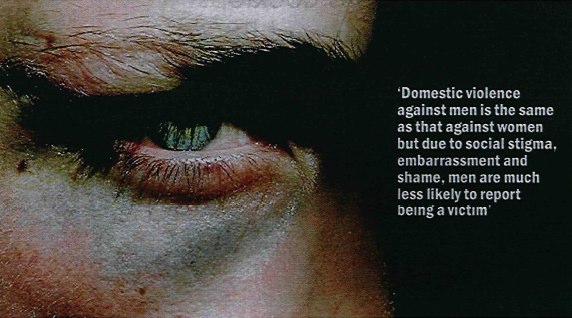 - Shannon L. Alder
- Shannon L. Alder - Every test in our life makes us bitter or better. Every problem comes to break us or make us. The choice is ours whether we become victims or victors.
- When people cheat in any arena, they diminish themselves. They threaten their self-esteem and relationships with others by undermining their trust in their ability to succeed and in their ability to be true. - Cheryl Hughes
- Trust, once lost, could not be easily found. Not in a year, perhaps not even in a lifetime. - J.E.B. Spredemann
- Don't get mad. Don't get even. Do better. Much better. Rise above. Become so engulfed in your success that you forget it ever happened.
- You asked why I couldn't forgive you; it was because you were the love of my life. And you didn't want to be. That's hard to let go of. - Kristan Higgins
- A real man doesn't have time to cheat because that man is too busy providing what a good woman deserves. - RituGhatourey
- People have a moral standard about what they will do and will not do.
 At the end of the day, someone who cheats has a lower moral standard than someone who does not. And they will cheat in other areas of life as well. - Carl Lewis
At the end of the day, someone who cheats has a lower moral standard than someone who does not. And they will cheat in other areas of life as well. - Carl Lewis - There is no way someone can love you and lie to you over and over again. You don't hurt the people you love.
- It is our wounds that create in us a desire to reach for miracles. The fulfillment of such miracles depends on whether we let our wounds pull us down or lift us towards our dreams. -Jocelyn Soriano
- Disappointments in love, even betrayals and losses, serve the soul at the very moment they seem in life to be tragedies. The soul is partly in time and partly in eternity. We might remember the part that resides in eternity when we feel despair over the part in life. - Thomas Moore
Infidelity Can Be Painful and Overwhelming
Therapy Can Help You Heal - Work Through Complex Emotions With A Licensed Therapist.
- Life is about trusting your feelings, taking chances, losing and finding happiness, appreciating the memories, learning from the past, and realizing people change.
 - AtulPurohit
- AtulPurohit - Let's hope that for every time we get hurt or break our heart, there is something somewhere written to make up for it, to make the happiness due even bigger and laughter even merrier, for, after all, good things must happen to good people. - Mansi Soni
- Everyone suffers at least one bad betrayal in their lifetime. It's what unites us. The trick is not to let it destroy your trust in others when that happens. Don't let them take that from you. - Sherrilyn Kenyon
Being cheated on is a terrible thing that happens to so many people. But it does not mean that your life is over or that you will never love, trust, or open yourself up to anyone again. People can heal and form relationships out of that healing. No matter what happens after discovering infidelity, believe in your strength and lean on others to help carry you on. And if you need it, keep some of these quotes nearby.
“He’s amazing - he’s gotten me through some tough times and reminds me I’m not made of super human strength - that I’m human with normal emotions and it is in fact okay to cry. He has been an amazing support through a horrible breakup.”
He has been an amazing support through a horrible breakup.”
“Nadja was very supportive and listened to my concerns in a non-judgmental way while offering helpful advice to get me through a very rough time in my relationship. Ultimately she helped me see that that the relationship hadn't been working for me, and she helped give me confidence to break out of the cycle and believe in myself in order to leave the situation. I would recommend her as a counselor to anyone going through personal or relationship issues!”
Frequently Asked Questions (FAQs)
What does cheating say about a person?
In most cases, betrayal, cheating, or infidelity is one of the worst things a person can do to their partner. Though cheating on a good person seems almost inconceivable to many of us, it turns out cheating and lying are fairly common in relationships.
Finding out that your woman or man is cheating (or partner is cheating) can be a huge shock, and it generally reflects very poorly on that individual.
Of course, many factors can motivate someone to cheat, including mental health concerns or low self-esteem. Though personally challenging, these factors still don't justify cheating. Dealing with the fact that your woman or man is cheating is very difficult and often requires external help, whether from friends and family or a mental health professional (or both).
One good way to start recovering from cheating, deception, or lying is to read up on some of the best cheating quotes or marriage quotes. These kinds of love quotes might seem cheesy, but they often provide essential and genuine wisdom.
Some good examples of marriage quotes and cheating quotes include:
- "It's okay to cry over them. It's even okay to forgive them. But do not go back to them. If they did not know how to love you the first time, they wouldn't know how to do it the next."
- "Respect is earned. Honesty is appreciated. Trust is gained. Loyalty is returned."
- "Don't get mad.
 Don't get even. Do better. Much better. Rise above. Become so engulfed in your success that you forget it ever happened."
Don't get even. Do better. Much better. Rise above. Become so engulfed in your success that you forget it ever happened."
Other times, just some inspirational quotes or life quotes can help you start to get over the person who's hurt you:
- "Life is about trusting your feelings and taking chances, losing and finding happiness, appreciating the memories, learning from the past, and realizing people change." - AtulPurohit
- "Everyone suffers at least one bad betrayal in their lifetime. It's what unites us. The trick is not to let it destroy your trust in others when that happens. Don't let them take that from you." - Sherrilyn Kenyon
Not everybody will gain the same amount of value from these cheating quotes or marriage quotes. The best cheating quotes don't necessarily tell you how to recover, but they can help you better understand your problems. These life quotes aren't going to solve your issues - they can help you get started on your road to recovery, though.
Why do people cheat on people they love?
There are many different reasons that one could choose to cheat. Unfortunately, cheating on a good person can be a terrible mistake, even one that leads to the end of a good relationship.
Some common reasons for cheating include:
- Disconnection
- Fear of commitment
- Low self-esteem
- Sexually addictive behavior
Some of the best cheating quotes can frame these issues in a profound light.
These life quotes aren't necessarily a panacea for dealing with a cheater, I imagine. But these marriage quotes or cheating quotes can provide value by showing empathy and wisdom in dealing with a situation like this.
Some of these inspirational quotes might include:
- "Feelings are much like waves, we can't stop them from coming, but we can choose which ones to surf." -Jonatan Mårtensson
- "Sometimes we expect more from others because we would be willing to do that much for them.
 " -Unknown
" -Unknown - "They didn't cheat because of who you are. They chose to cheat because of who they are not." -Charles J. Orlando
- "Cheating on a good person is like throwing away a diamond and picking up a rock." -Unknown
These marriage quotes may provide solace for some and perhaps help some start a path to recovery.
Do cheaters feel guilty?
In general, people do feel guilty after they cheat. Among men, 68% feel guilty after having an affair.
When a man is cheating, he might be doing it for other reasons such as low self-esteem or mental health concerns. After the lying, cheating, and affair, he usually will feel guilty because he knows that isn't who he is. However unfortunate it is, one wrong decision can ruin a relationship full of good decisions.
One good way to better understand how cheaters feel after an affair is to look at some cheating quotes. These kinds of love quotes, or lack thereof, might be an excellent way to put an affair in perspective. Some of the best cheating quotes or love quotes include:
Some of the best cheating quotes or love quotes include:
- "You didn't just cheat on me; you cheated on us. You didn't just break my heart; you broke our future." -Steve Maraboli.
- "If you cheated on a person that was willing to do anything for you, you cheated yourself out of true loyalty."
- "People have a moral standard about what they will do and will not do. At the end of the day, someone who cheats has a lower moral standard than someone who does not. And they will cheat in other areas of life as well." -Carl Lewis.
These cheating quotes can help an individual better understand the effects of an affair on a relationship. Marriage quotes may not save your marriage, just like love quotes won't magically let you find love. But it can be an excellent first step in the right direction and encourage you to find the right mindset to move forward.
What are the signs of cheating?
There can be many different signs of cheating. Any unusual changes in behavior or routines can be something to look out for if you suspect your partner might be having an affair. Things like secretive phone or computer use, overly defensive, or excessively justifying some activities could be signs of infidelity.
Any unusual changes in behavior or routines can be something to look out for if you suspect your partner might be having an affair. Things like secretive phone or computer use, overly defensive, or excessively justifying some activities could be signs of infidelity.
It can be challenging to deal with a partner that has cheated on you, but some marriage quotes or cheating quotes can help frame the issue for you. It might seem strange to consult marriage quotes during a cheating experience, but these quotes can provide a critical perspective on what a good relationship looks like.
Some of these best motivational quotes and marriage quotes include:
- "Life is about trusting your feelings and taking chances, losing and finding happiness, appreciating the memories, learning from the past, and realizing people change." - AtulPurohit
- "On particularly rough days when I'm sure I can't possibly endure, I like to remind myself that my track record for getting through bad days so far is 100%, and that's pretty good.
 " -Unknown
" -Unknown - "It is our wounds that create in us a desire to reach for miracles. The fulfillment of such miracles depends on whether we let our wounds pull us down or lift us towards our dreams." -Jocelyn Soriano
These kinds of love quotes are essential for maintaining a level head when dealing with a cheating partner.
Life quotes might seem like they simplify an exceedingly complex relationship, but sometimes there is wisdom in simply sayings that create positive outlooks. These love quotes may not save your relationship on their own, but they might be able to put you in the right mindset to overcome your struggles.
How common is cheating?
Cheating is relatively common; about 1 in 5 Americans admit to having cheated at least once in their life.
The lying, cheating, and betrayal that accompanies infidelity can be difficult to deal with for the other partner. A really good way for someone who has experienced infidelity to start recovering is to look at some good life quotes, love quotes, or even relationship or marriage quotes.
Love quotes can help a person frame their issues and begin to move forward. Marriage quotes that show what a good relationship should be can also help set proper expectations.
Some of the best quotes include:
- "Let's hope that for every time that we get hurt or break our heart, something is being written to make up for it, making the happiness due even bigger and laughter even merrier, for, after all, good things must happen to good people." - Mansi Soni.
- "Everyone suffers at least one bad betrayal in their lifetime. It's what unites us. The trick is not to let it destroy your trust in others when that happens. Don't let them take that from you." - Sherrilyn Kenyon
How Do I Stop overthinking after being cheated on?
What percentage of relationships work after cheating?
How do you rebuild trust after cheating and lying?
How do I find peace after being cheated on?
How do you heal from infidelity trauma?
For Additional Help & Support With Your Concerns
Speak With A Licensed Therapist
This website is owned and operated by BetterHelp, who receives all fees associated with the platform.
The information on this page is not intended to be a substitution for diagnosis, treatment, or informed professional advice. You should not take any action or avoid taking any action without consulting with a qualified mental health professional. For more information, please read our terms of use.
90,000 Victims of adultery named 9 signs of infidelity. ReedusMen and women may have different reasons for cheating, but both resort to the same methods of lying and hiding traces. Fans of walking to the left themselves confirmed this on the Reddit forum, honestly answering the question of what they can be caught on. After studying the comments of the victims, Anews identified 9 not-so-obvious signs of partner infidelity.
1. He/she accuses you of treason
If you are often and persistently accused without objective reasons, it is likely that the accuser himself is not without sin.
One of the commentators thinks that one who is honest himself will not accuse another if there is no evidence. But "the dishonest accuses without reasons and evidence, just to divert attention from himself."
But "the dishonest accuses without reasons and evidence, just to divert attention from himself."
"When you cheat chronically, you yourself become paranoid about cheating - since it's easy for me, then maybe the one I'm deceiving does the same thing?" notes another victim of adultery.
© maxpixel.freegreatpicture.com
2. "It's just a friend (friend), don't worry"
“I don't know about women, but when a guy says not to worry about such and such a girl, start to panic. He is definitely not indifferent to her, ”says the girl, who is clearly familiar with the situation.
Another deceived is convinced that people who claim that they can "just be friends" with the opposite sex are lying. And he adds: "I judge by myself and declare with all responsibility: this is bullshit."
3. He/she "jealously" watches who you communicate with and avoids general company
If your partner carefully “filters” the people with whom you communicate, if not trying to avoid company with you at all, this is a reason to think, they say “experienced”. A cheating person is always afraid: what if someone saw him with someone else?
A cheating person is always afraid: what if someone saw him with someone else?
As one commenter said, her boyfriend, whom she dated for four years, had an "old girlfriend." The girl was personally acquainted with her, but the young man constantly tried to make sure that they did not meet, while saying that he did not really like gatherings in companies. "I didn't suspect anything...until I received an invitation from her in the mail to their wedding."
© pixabay.com
4. He/she has an excuse for everything
Another victim of infidelity believes that it is hardly possible to wait for an admission of infidelity from her partner. However, according to her, one can easily distinguish "truth from lies, which are either too vague or, conversely, replete with unnecessary details."
5. "Rule of two drops"
But it also happens when you are given the truth "drop by drop". All confessions of your partner seem quite innocent. You continue to trust him, but at some point (too late, unfortunately) you realize that you have been cruelly manipulated.
You continue to trust him, but at some point (too late, unfortunately) you realize that you have been cruelly manipulated.
“I was with the girls… With the girls, but then the guys came up… Actually, I was with N and his friends… To be honest, I was with N at his house… Nothing happened!.. Okay, we kissed ... Okay, we slept together, but only once ... Okay, I've been sleeping with him for a year already ... "
It is clear that in this stream of confessions "drop by drop" the last drop will be the most bitter. But why wait for the end, when even from the second “drop” it was possible to understand that something was wrong there, one of the young people deceived by his girlfriend believes.
© pixabay.com
6. A “non-dangerous” woman appeared in his life
As a rule, this is a colleague with whom a man defiantly talks on the phone on work topics, conducts extensive correspondence, travels to meetings and on business trips. He convinces his wife (girlfriend) that she means nothing to him, and in the future boldly hides behind her name, meeting with a real mistress.
One former mistress of a married man called this sign, noting that he is not alone in doing this. By the way, it is quite possible to assume that unfaithful wives also do not disdain such cunning.
© pixabay.com
7. The attitude of his/her friends and family towards you has changed
One of the commenters shared the observation that some couples, when they find out about the betrayal of a partner, behave in public, as if nothing had happened. However, more often it happens that their attitude towards old acquaintances changes. “They move away from you, maybe because they are embarrassed or ashamed to be silent, or you are no longer “their person” for them. Or maybe they said nasty things about you to justify their own betrayal.
8. Sudden sexual enthusiasm
Many of the deceived women called the fact that a partner avoids sex under various pretexts as a sign of infidelity. Their arguments are simple: "Even the most two-faced men will not have the strength to serve two ladies at the same time. "
"
But most unfaithful men, hearing this argument, protested, “Quite the opposite! New bed adventures only whet the sexual appetite. And the easiest way to satisfy him is with the one who is always there.
It turns out that if a partner suddenly becomes too playful in bed, a woman should be wary.
© pixabay.com
9. You are drowning out your inner instinct
This last sign lies in yourself, many of the deceived women and men are sure, writes Anews.com.
After all, this is how it happens: there are a number of signs, you feel betrayal in your gut, but you convince yourself that your couple is special, that this is impossible for you, that everything will soon explain itself. You doubt, but in yourself, not in your partner, and in this way you only help to deceive yourself.
“Doubting myself, I created such comfort for him! A whole year of silent doubts, until one fine day one of his girls asked on the phone: “Who are you?” One of the deceived women wrote.
Interestingly, as Reedus wrote earlier, every third Russian woman is ready to put up with her husband's infidelities. At the same time, 45% of Russian women surveyed noted that they did not know what they would do if they became aware of their spouse's infidelity.
But according to another sociological survey, every second Russian woman is ready to cheat on her husband. It turned out that 56% of the women surveyed had holiday romances at least once in their lives.
Meanwhile, British scientists have come to the conclusion that a man's fidelity directly depends on his body weight. Women who do not want to get involved with womanizers should choose overweight men.
Psychologists have named 7 types of people who are always cheated on
Psychotherapist Esther Perel says that cheating often has no direct relationship to a partner. Sometimes it's a quest to find yourself through accepting your own sexuality and working through childhood trauma. But certain types of people seem to start this game with their behavior, their lifestyle.
But certain types of people seem to start this game with their behavior, their lifestyle.
Victim Syndrome
In general, all sides of the "Karpman triangle" - victims, persecutors and rescuers, can suffer from betrayal. Yes, no one is safe. But sacrifice comes first. They need help, they shift the responsibility to someone else. And they treat them accordingly, arguing that a person still does not have his own opinion, which means that it’s okay to change him. If the victim adapts to the needs of another, then he will adapt to this. People who have been living in co-dependent relationships for years and playing the role of victims need the help of a psychologist, because the one whom they call a loved one cannot help them - he himself is part of this sticky, deceitful web.
Relationship destroyers: The psychologist named 10 women's habits that should not be tolerated
Complaints about everything in the world
Variety of victims. But here the matter is different. Every person needs to be heard and pitied. But if whining becomes part of a life strategy, the partner, voluntarily or involuntarily, begins to get the impression that he has contacted someone eternally sick and unhappy. He will want a holiday, and he will most likely go looking for it where they laugh and smile, take life easy, live in the present moment. A depressive outlook on life generally conflicts with healthy sexuality. In addition, living with such a psychological background is a colossal waste of moral and physical strength. Unhappiness is contagious.
But here the matter is different. Every person needs to be heard and pitied. But if whining becomes part of a life strategy, the partner, voluntarily or involuntarily, begins to get the impression that he has contacted someone eternally sick and unhappy. He will want a holiday, and he will most likely go looking for it where they laugh and smile, take life easy, live in the present moment. A depressive outlook on life generally conflicts with healthy sexuality. In addition, living with such a psychological background is a colossal waste of moral and physical strength. Unhappiness is contagious.
Photo © Shutterstock
Emotionless
They say about such people: "neither fish nor fowl." In relations with them, it seems that some important seasoning, spark, madness is missing. They are satisfied with everything, and sometimes they don’t even believe that this can even be. The person does not express negative emotions, does not make comments. In theory, this is the ideal. But men or women who live or meet with such partners one day come to the idea of somehow hurting, stirring up the phlegmatic. And the most powerful tool is to flirt with someone on the side, or even to sleep at all. The method is so-so. It is better to choose a partner that suits your temperament immediately. Chicago psychologist Martin Friedman believes that sometimes unmotivated aggression pushes for treason. It is about such people that they say: “What did I do to him? I didn’t even say a bad word.” Humans are very complex creatures.
But men or women who live or meet with such partners one day come to the idea of somehow hurting, stirring up the phlegmatic. And the most powerful tool is to flirt with someone on the side, or even to sleep at all. The method is so-so. It is better to choose a partner that suits your temperament immediately. Chicago psychologist Martin Friedman believes that sometimes unmotivated aggression pushes for treason. It is about such people that they say: “What did I do to him? I didn’t even say a bad word.” Humans are very complex creatures.
Self-respecting sluts
Photo © Shutterstock
An eccentric genius wearing mismatched shoes, buttons awry, and a garlic-smelling "pasta factory explosion" hairdo, in the context of a romantic comedy might look great. Another thing is life. Not everyone is ready for a serious relationship with a slut. It depends on patience: some are ready to accept, someone will try to accustom him to order, make a tactful remark, and someone will not even try. When the hormonal frenzy passes, all the little things will catch your eye and become annoying, then the partner will simply go somewhere in search of a more perfect man. To an even greater extent, this rule applies to the fair sex. An untidy woman on a subconscious level inspires disrespect. And when at least subconsciously they don’t respect, it’s easier to change somehow, as if you have already found an excuse for yourself.
When the hormonal frenzy passes, all the little things will catch your eye and become annoying, then the partner will simply go somewhere in search of a more perfect man. To an even greater extent, this rule applies to the fair sex. An untidy woman on a subconscious level inspires disrespect. And when at least subconsciously they don’t respect, it’s easier to change somehow, as if you have already found an excuse for yourself.
To the left of the house: The psychologist revealed 10 signs that a man started a second family
Time management on schedule", this can be a problem. For such partners, relationships in general may not be in the first place. If dates are set aside three days a week at strictly designated times, the partner will probably figure out how to fill hours that are not intended for him. And a fleeting romantic connection can be very helpful. People who take their lives very seriously and chart them in a weekly journal should remember that spontaneity plays a big role in love. With this, of course, it is also better not to overdo it.
With this, of course, it is also better not to overdo it.
The habit of controlling everything
Photo © Shutterstock
If a girlfriend plays the role of a "strict mother" and a guy is paranoid about his girlfriend's every step, this creates a very stuffy, stale atmosphere in a relationship. Control is born from distrust, and who can like it?! Sooner or later, you will want to communicate with someone with whom it is easy, with whom you are not afraid to provoke some "wrong" emotion. And behind the total control is usually an unresolved traumatic experience of past relationships, as well as self-doubt and low self-esteem. All this kills attraction, and since the need for physiological discharge remains, a person will go and find himself affection and warmth. Where there is no control. A strict partner is associated with parents provoking a teenager to rebellion "with their stupid rules and control."
Pathological addiction
Those who have an affair "with a glass", "substances", gambling, often do not realize that this is the main love of their life.

